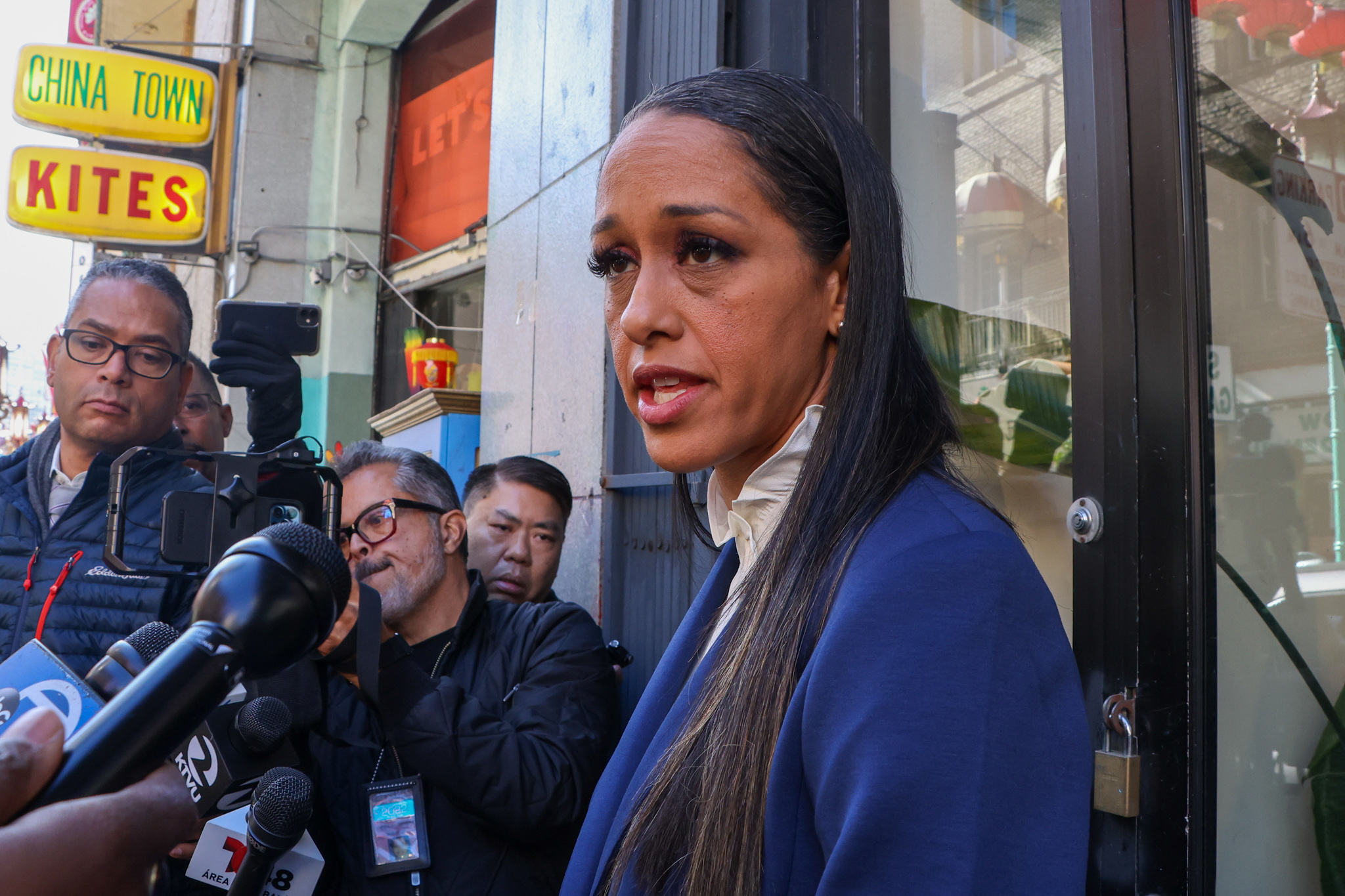A San Francisco judge is seriously considering blocking District Attorney Brooke Jenkins’ office from prosecuting two men in the killing of her relative because of comments she made about the case during the recall of Chesa Boudin.
While he has yet to decide whether to disqualify the District Attorney’s Office from handling the case, San Francisco Superior Court Judge Christopher Hite said Tuesday he was concerned about Jenkins publicly questioning the strength of the prosecution while campaigning to recall Boudin.
“During that campaign, there was specific mention of this case,” Hite said in court. “I do have concern about how a fair trial can be reached when she later becomes the district attorney of the entire office.”
Jenkins repeatedly commented on the case against Sincere Pomar, 21, and Stevie Mitchell, 20, after quitting her job as a prosecutor under Boudin to help lead the recall. Jenkins publicly doubted that the case would hold up in court because Boudin did not file gang charges against the suspects. The victim of the fatal shooting, Jerome Mallory, 18, is her cousin by marriage.
Hite weighed in on the issue Tuesday after hearing dueling arguments from defense attorneys and the California Attorney General’s Office.
While defense attorneys argue that their clients cannot get a fair trial if prosecuted by the office, the state AG says Jenkins has done enough to protect their rights by erecting an “ethical wall” separating her from the case.
Deputy Attorney General Sharon Loughner argued that there was no evidence that Jenkins’ statements as a private citizen—before her appointment or election as district attorney—had “infected” the prosecution.
“It has not happened here,” Loughner said, appearing in court remotely.
State prosecutors previously declined to take over the case as requested by Jenkins’ office after Mayor London Breed appointed her district attorney. The state AG determined that the ethical wall was enough to protect the case.
Jenkins swore under oath last week that she has not breached the wall, directed the investigation or attempted to influence the prosecution of the case.
But Pam Herzig, an attorney representing Mitchell, contends there is reason to doubt Jenkins would abide by the ethical wall, in part because she accessed sensitive files in another high-profile case that she had no official role in.
The fact that her line prosecutors are at-will employees also means that they could be subject to pressure from Jenkins, Herzig argues. This could be a problem when it comes to negotiating a plea deal for Mitchell or Pomar.
“How the hell am I ever going to have a fair conversation [with the District Attorney’s Office] about this case?” Herzig said.
In the end, Hite was not convinced Jenkins had breached the ethical wall, but her public doubts about the case not holding up in court gave him pause.
“That to me is a concerning statement, to an extent,” Hite said. “The fact that she says the case is somewhat weak or is weak, that is kind of a concern.”
Hite said her statements may “create an impression” that Jenkins’ attorneys need to charge the defendants with gang enhancements, which they have not done.
He indicated he was considering granting the motion to recuse the office.
“Most of the time I would deny these,” he said.
Hite is set to make a ruling Nov. 30.
